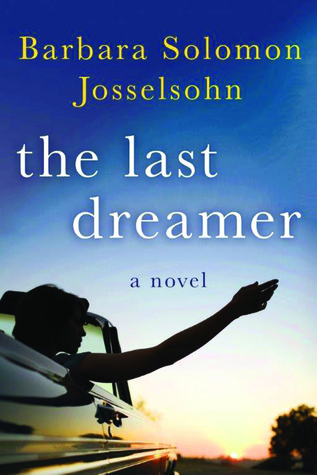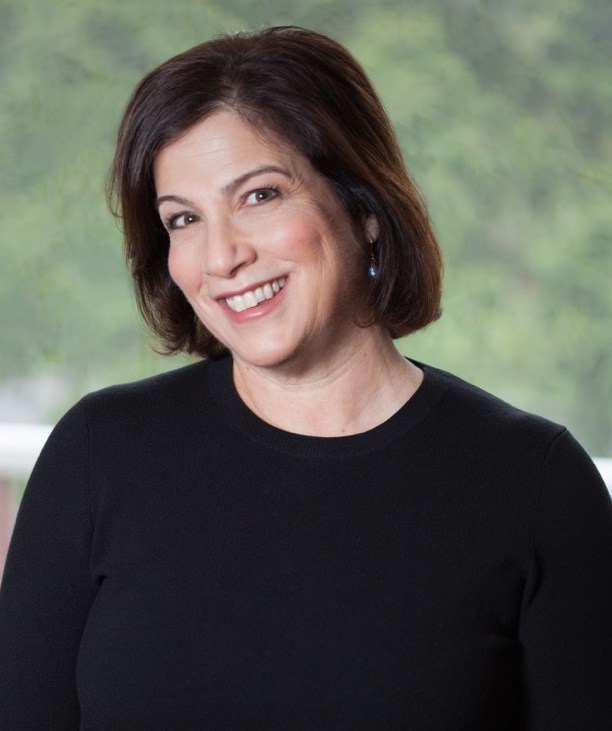Local Author Publishes "The Last Dreamer"
- Monday, 04 January 2016 16:09
- Last Updated: Monday, 15 May 2023 13:04
- Published: Monday, 04 January 2016 16:09
- Joanne Wallenstein
- Hits: 6719
 Scarsdale's Barbara Solomon Josselsohn recently published her first novel, The Last Dreamer, about the hopes, ambitions and frustrations of a suburban housewife who has put aside her own professional goals to raise her children and support her husband's career. Those of us who live in the 'dale will recognize the setting and identify with many characters in the story. It's fun to see the place we know and love chronicled in a novel and to get into the head of a stay-at-home mom who doesn't feel very lucky to be there.
Scarsdale's Barbara Solomon Josselsohn recently published her first novel, The Last Dreamer, about the hopes, ambitions and frustrations of a suburban housewife who has put aside her own professional goals to raise her children and support her husband's career. Those of us who live in the 'dale will recognize the setting and identify with many characters in the story. It's fun to see the place we know and love chronicled in a novel and to get into the head of a stay-at-home mom who doesn't feel very lucky to be there.
The quick read follows Iliana Passing, a former business writer, as she attempts to resurrect her name in journalism. Looking for a compelling story, she happens upon a former teen idol (Jeff Downs), who now runs a business in northern Westchester and manages to get an appointment to interview him. When he assumes she is a writer for the New York Times, she doesn't correct him, and through a series of misrepresentations and misunderstandings she convinces him that he'll be featured in the paper – while at the same time, convincing herself that the story will launch her back onto the career path she lost years ago.
Her white lies take her further than she intended, ultimately landing her far from home on a business trip to California. When the teen idol and a former band member reunite, Passing quickly realizes that the sorry duo will never draw an audience again. Worse, when Downs realizes he has been deceived, and Passing's husband finds out what she's up to, she risks the loss of far more than her faltering writing career.
I can't share more without ruining the book for you, but I will say that it's engaging and often hilarious. Check it out on Amazon here.
We asked Josselsohn to answer a few questions about herself and her new book and here is what she shared:
How long did it take you to write the book?
It took a long time — about 18 years all told! It took so long for a few reasons — I was new to fiction writing, so I had a lot to learn, and I was raising my kids and working at home as a freelance magazine writer, so my time was limited. I put it away for long periods of time, when I was struggling with the plot or feeling overwhelmed by how daunting the whole process of getting published seemed. But I always returned to it. I fell in love pretty early on with the characters and the story, so I never intended to put it away for good. I also had unbelievably wonderful teachers and friends who believed in the book and kept me motivated.
What are some of the differences between writing shorter fiction and developing a full-length novel?
I'm actually not a short-fiction writer, but I can talk about the differences between writing a novel and writing the kinds of essays and business articles I've been writing for most of my professional life. Business writing is all about facts — getting the quotes, digging for details, and then assembling all the pieces into a compelling story. Novel writing is less about assembling and more about inventing. So there's a freedom to it that continues to feel new and invigorating to me. On the other hand, there's a lot more instant gratification to the kind of journalism I was practicing for many years. You research a story, you write it, your editor approves it, and within a few weeks or months, it's in print, and you're getting a paycheck. Novel writing — as least for me — is much s-l-o-w-e-r!
What was the process for finding an agent and a publisher?
Finding an agent is a tough process, and you definitely need a thick skin. You need to do everything — network, go to conferences, go to classes, join writers groups, send out cold queries — with the hope that something will stick. There's a lot of rejection involved, but then again, you only need one "yes"! I tried to get an agent for the first time many years ago and didn't get a nibble, which told me that the manuscript just wasn't ready. So I dove in for another revise. Then, when I was certain the book was finished, I tried again. This time - success! I had met my agent while I was still writing the book — I had enrolled in a class she taught at Sarah Lawrence College about the publishing business. I thought she was so smart and savvy, and I felt that her authors were very lucky to have her. When I finished the book, I followed up with her, and she asked to see my manuscript. Waiting to hear back from her took a few months, and it was torturous — but what at thrill when we spoke on the phone and she said she was interested in representing it! As I'd expected, once it was in her hands, things sped up considerably. She sold it to my publisher within a few short months.
There's an old adage that says "Write What You Know." Can you comment on this in light of your new book?
Well, the book takes place in Scarsdale and the protagonist is a former journalist who took a break from her career to have a family — so I guess I adhere pretty strongly to that adage! But actually, I think there's a balance in the book between what I came to the writing process knowing, and what I wanted to research and explore. As you may know, one of the main characters in the book is Jeff Downs, an ex-TV star who achieved fame very early in life. I've always been fascinated by celebrity — celebrity gained and celebrity lost — and I was excited to do the research that could help me render this character successfully. I set out to read as many celebrity biographies and autobiographies as I could, and I found many common threads in their stories. I also read a ton of books and articles about Hollywood, the movies, and stardom. And I dragged my poor husband to a bunch of "oldies" concerts so I could see former teen idols decades after they were stars. By the time I was writing about Jeff Downs, he was entirely real to me.
Your main character, Ilana, goes way out on a limb to pursue her dream. What were the challenges of writing an engaging story that doesn't strain credulity?
I think the important thing is never to lose touch with the emotional truth in the story. Anger, regret, frustration, disappointment, hope, love — these emotions are what novels are really about, and the plot helps a writer explore them. Think about the Harry Potter books — talk about plots that strain credulity! And yet many people love these books because what they're really about is a young man's personal — and often internal — struggle to face his fears and prevail. Some of my favorite movies from the past — Big with Tom Hanks, Peggy Sue Got Married with Kathleen Turner — had outlandish plots, but it didn't matter; viewers were invested in the main character's personal odyssey. Look at the Toy Story movies. Nearly everyone I know saw Toy Story 3, and nearly all of them fell to pieces at the end. It didn't matter that the plot was unrealistic; it was a heartfelt story about family, and love, and growing up, saying goodbye — all the things that matter in life.
We live in a relatively small community – was it difficult to write a book that hits so close to home?
I actually think that's what kept me motivated. I would mention to people what the book was about, and they'd immediately tell me about their own (or their wife's) struggle to get back into the workforce, or they'd talk about their own teenage celebrity crush. When people related and responded to my idea, it made me feel that I was on the right track.
As you note in the book, the market for journalists and writers has changed. What are your thoughts about the future of creative writing and journalism, and what advice would you give students who wish to pursue this field?
I think the market for magazine writers — like the kind I was — has gotten tougher. The Internet put many excellent magazines out of business. Of course, there are many online outlets today for writers, but many of these don't pay writers for their work. New writers who want to freelance, I think, will search harder for paying markets than I did when I was just starting out. On the other hand, the Internet has opened up a ton of new markets for writers in any genre who want to get their work read. It's really a wonderful feeling, when readers respond to your work. As for fiction writing, I actually think that market has opened up a bit in the last few years. It was pretty tough several years ago, when the big publishers were consolidating and people were predicting the demise of the print book. But that hasn't happened. In fact, new, innovative publishers who know how to best connect readers and writers have come on the scene. I have several writer friends who struggled in the past, as I did, and are now having more success in getting published. I think it's a pretty exciting time to be a novelist, actually.
What are your plans for the future?
I am currently working on my second novel, which I think it will be a little darker than the first one. I have no other details to share right now — but I hope you'll stay tuned!
Josselsohn will read from the book at the Scarsdale Library on Friday night January 8 at 7:30. Stop by to meet her, pick up a copy of the book and also meet local author Liane Carter, who will discuss her book, "Ketchup is My Favorite Vegetable: a Family Grows Up With Autism."






